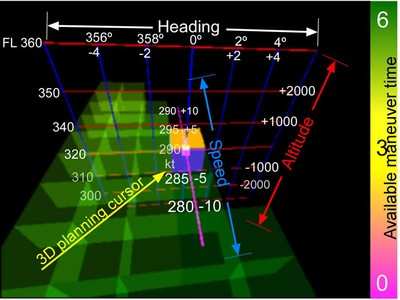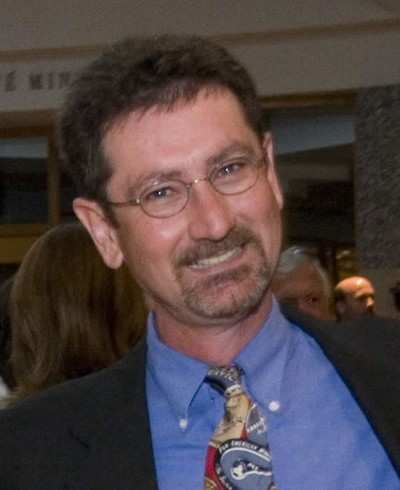Project To Test 4-Dimensional Collision Avoidance System
 The Lindbergh
Foundation told ANN this week Dr. William Knecht of Maneuver Space
Technologies of Pocasset, OK has been awarded a 2007 Lindbergh
Grant for his project entitled, "Reducing Upper Atmospheric Fuel
Burn through Direct Routing Air Traffic Technology."
The Lindbergh
Foundation told ANN this week Dr. William Knecht of Maneuver Space
Technologies of Pocasset, OK has been awarded a 2007 Lindbergh
Grant for his project entitled, "Reducing Upper Atmospheric Fuel
Burn through Direct Routing Air Traffic Technology."
Energy use and climate change are global concerns. Aircraft
exacerbate both by converting fuel to greenhouse gasses in the
upper atmosphere precisely where they exert disproportionately
large effects on climate. Worldwide, aircraft produce over 600
million tons of CO2 per year, with passenger traffic projected to
increase by about 5% per year.
The most straightforward way to save fuel and reduce emissions
is to fly shortest-distance, direct routes. However, commercial
aircraft follow segmented jetways, effectively adding up to 12%
distance to each flight.
For this project, Dr. Knecht will test 4CAS, a 4-dimensional
collision avoidance system based on aircraft heading, speed,
altitude, and available maneuver time. 4CAS makes optimal maneuvers
graphically prominent to the air traffic controller or pilot,
despite dense air traffic. The information representation can be
extended to include weather, terrain, and special-use airspace, and
is compatible with either manual or automatic collision avoidance
systems (auto-CAS).

The goal of this project is to change the way maneuver
information is represented to enable safe, efficient, easy, and
rapid aircraft maneuvers during direct routing. Reducing aviation
fuel consumption, flight duration, and engine operation time
benefits not only the global environment, but passengers and
airlines as well.
Dr. Knecht received one of 14 Lindbergh grants awarded so far
this year, the most grants issued by the Foundation since 1985. He
was chosen from 150 applicants from around the world. Lindbergh
Grants are made in amounts up to $10,580, a symbolic amount
representing the cost of building Charles Lindbergh’s plane,
the Spirit of St. Louis, in 1927. To date, more than $2.7 million
has been awarded to 284 researchers. Richard and Susan Kane
sponsored this aviation project.
The Lindbergh Grants program enjoys an excellent reputation
among the scientific community and the public sector for supporting
exceptional, high-quality projects and dedicated researchers.
"Our grants program helps put ideas on the move thanks to our
investment in people," said Clare Hallward, Chairman of the
Lindbergh Foundation Grant Selection Committee. "Our grants enable
dreams to be realized for people who see a better way of doing
things. Their projects explore technological and ecological
solutions that are both practical and visionary."
Lindbergh grants support innovative ideas often at an early
stage in their development, young researchers, and provide dollars
to establish pilot projects. Applicants undergo a rigorous
five-step review process focused on evaluations by two independent
all volunteer review groups, including a 65-member Technical Review
Panel. This international panel is comprised of knowledgeable and
respected individuals drawn from the various fields in which
Lindbergh grants are made.

"Because of the standards employed by the Foundation’s
grants program, it has earned international credibility, which
enables many Lindbergh grant recipients to secure additional
funding to continue their important work, making it a highly
sought-after award," said Hallward.
 ANN's Daily Aero-Term (07.10.25): Performance-Based Navigation (PBN) [ICAO]
ANN's Daily Aero-Term (07.10.25): Performance-Based Navigation (PBN) [ICAO] NTSB Prelim: Cessna 172
NTSB Prelim: Cessna 172 ANN's Daily Aero-Linx (07.10.25)
ANN's Daily Aero-Linx (07.10.25) Classic Aero-TV: The Big Business of Diminutive Powerplants
Classic Aero-TV: The Big Business of Diminutive Powerplants Airborne 07.11.25: New FAA Bos, New NASA Boss (Kinda), WB57s Over TX
Airborne 07.11.25: New FAA Bos, New NASA Boss (Kinda), WB57s Over TX





